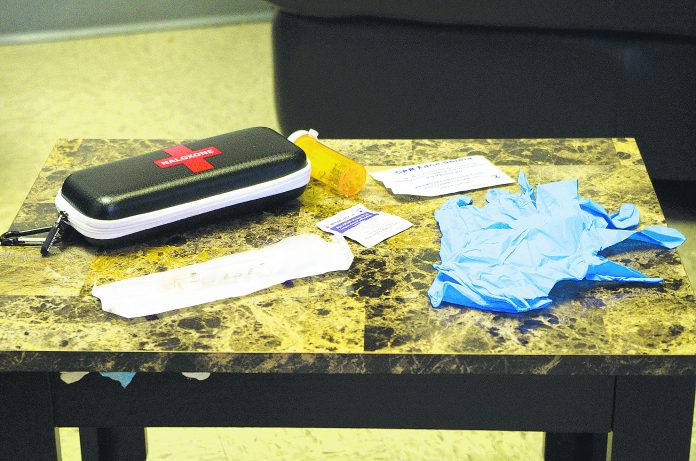
People need to remember that fentanyl is dangerous and that it is in Prince Albert and the surrounding area, said Prince Albert RCMP in a news release.
Overdoses continue to happen, including a recent fatality.
“We continue to see suspected fentanyl overdoses in our service area – tragically including one recent fatality. We want people, particularly those who are at elevated risk, to be aware of the dangers that come with using illicit drugs,” says Sgt. Lisa Molle of the Prince Albert RCMP. “Fentanyl is present in our community and in communities across the province. Drugs presenting as one thing may, in fact, contain fentanyl without the user knowing. The dangers are very real – that’s why it’s so critical for people to know the risks and what to do if they suspect someone is experiencing an overdose.”
Prince Albert RCMP have responded to four overdoses in their jurisdiction since mid-November, one of which was fatal. Other overdoses were reported during that time period; however, these incidents were attended to by emergency medical services and did not require police response.
Here are some things you need to know:
What is Fentanyl? Fentanyl is a very potent opioid pain reliever. It can take many forms: a colourful powder, chunks, pills or patches. It is also sometimes mixed with other street drugs. More information about fentanyl can be found at https://www.canada.ca/en/health-canada/services/substance-use/controlled-illegal-drugs/fentanyl.html.
A few grains of it can be enough to kill you, so it’s important to know how to identify it. If you think you’ve found fentanyl, contact police. Officers have the training and equipment to safely handle and dispose of it.
New drug testing strips available: The Government of Saskatchewan recently announced it is expanding access to fentanyl and benzodiazepine drug checking strips to help curb the number of overdose deaths in the province. These take home test strips are now available at over 30 locations across Saskatchewan. To find the closest location for pick-up, the public can visit saskatchewan.ca/overdose.
Have a plan. One of the risks of using street drugs is they can contain other substances the user may not be aware of. This can have serious effects on the body or even be fatal. If you don’t know the strength or what is in it, use small amounts. Don’t use alone. Take turns or let someone you trust know of your plans to use.
How to recognize an overdose. Someone experiencing one may show signs and symptoms that include:
– Slow, weak or no breathing
– Blue lips or nails
– Dizziness and confusion
– Can’t be woken up
– Choking, gurgling or snoring sounds
– Drowsiness or difficulty staying awake
What to do when an overdose occurs. An overdose is a medical emergency. If you witness one, call 911 immediately. Emergency responders, including frontline Saskatchewan RCMP officers, carry naloxone, a fast-acting drug used to temporarily reverse the effects of overdoses caused by opioids.
You have some legal protection if you call for help. The Good Samaritan Drug Overdose Act provides some legal protection for individuals who seek emergency help during an overdose, including the person experiencing an overdose. The Act protects the person who seeks help, whether they stay or leave from the overdose scene before help arrives.
You can keep naloxone handy. Members of the public can also keep naloxone on hand if they or someone they know is at risk of overdose. The Government of Saskatchewan offers a ‘take home naloxone’ kit available free of charge at many locations in the province. Naloxone can also be purchased at the Saskatchewan pharmacies on this list. It’s important to remember that even if Naloxone is administered, medical assistance is required as an overdose is a medical emergency. If you witness an overdose, call 911.
There is help available. If you want to quit using drugs, there are services available to support you. To find services near you, visit www.saskatchewan.ca/addictions. You can also call the Province of Saskatchewan’s HealthLine at 811.
Getting dangerous illicit drugs off the street continues to be a top priority for the Saskatchewan RCMP. If you have information about drug trafficking in your area, you can report it to your local detachment by calling 310-RCMP. Information can also be submitted anonymously through Crime Stoppers by calling 1‐800‐222‐TIPS (8477) or submitting a tip online at www.saskcrimestoppers.com

